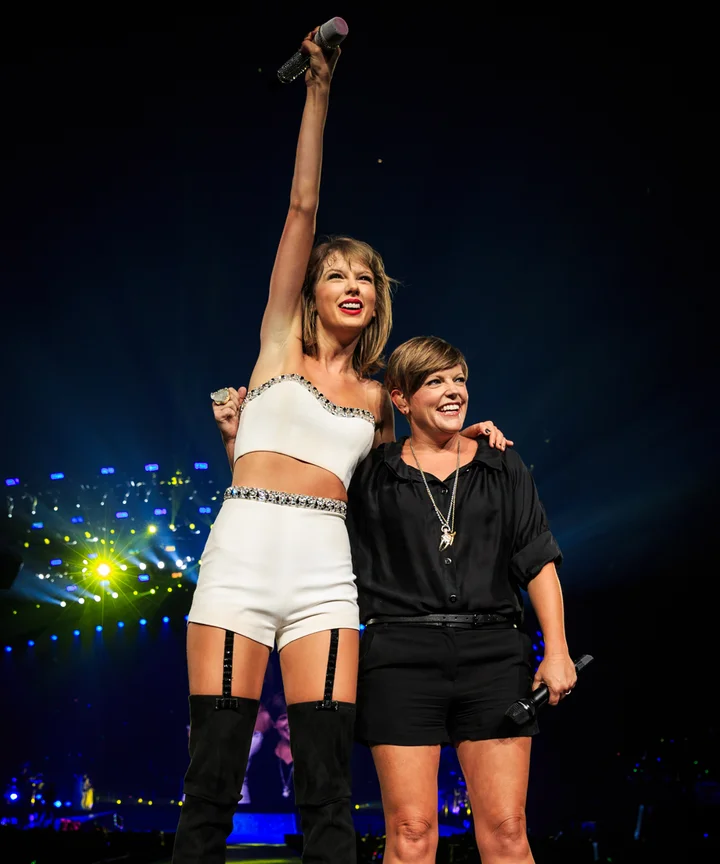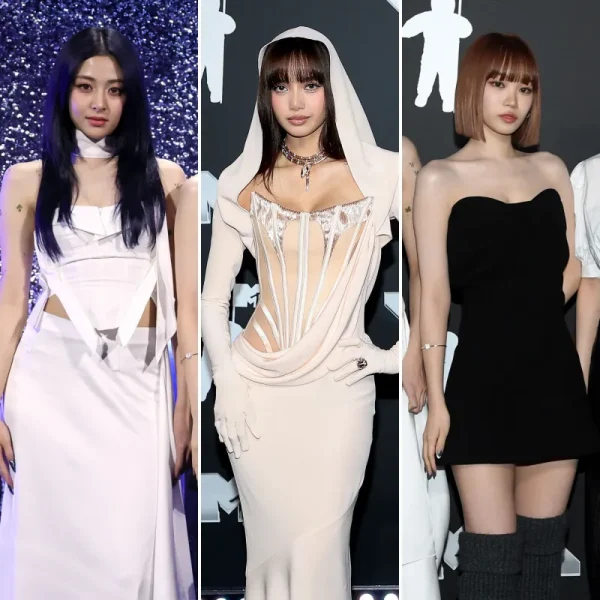
Refinery 29
As a Swiftie and a K-pop fan, I have seen a wide spectrum of perspectives regarding celebrity influence in politics. Due to recent political events, Taylor Swift — a billionaire superstar — is constantly pressured to speak out and receives criticism when she does not do so. On the opposite side of the popular culture world, K-pop idols are often highly discouraged or banned by their respective companies from speaking out about any issue, maintaining a neutral stance on all topics to avoid breaking the bonds fans create with their idols. There is a clear difference in culture between the Western and Eastern approaches to celebrity politics. However, both prove the impacts of the parasocial relationships between celebrities and their fans, displaying the power dynamic that comes into play when politics is involved.
On one hand, celebrities have the responsibility to be politically conscious. This may entail actively voicing their opinions on such topics. It is not difficult to understand why this is true — celebrities wield soft power due to their fame; their influence on fans and the general public is high, especially for household names such as Taylor Swift. Considering her powerful influence over her fanbase, Swifties have created large-scale campaigns endorsing Kamala Harris under the artist’s name, dubbing the movement “Swifties for Kamala”. While the organizers claim that they are not speaking for Swift, there is an undeniable connotation that comes with the name. While numerous celebrities like Swift have recently faced backlash for their silence on current affairs, there is some truth to the idea that speaking out is better than staying silent, though there is room for nuance; when celebrities do speak out, they make themselves vulnerable to criticism.
When celebrities do participate in politics, many are told that they should keep their mouths closed; celebrity activism can become far more complicated when there is a conflict of interest. A famous example of this is the backlash LeBron James faced after criticizing former president Donald Trump, dubbing him “someone who doesn’t understand the people” on ESPN. In response, he was later told to “shut up and dribble” by a conservative journalist on Fox News. In this instance, James’ decision to speak out may not have necessarily been the issue, but it was likely that his political stance misaligned with Fox News’ viewers, causing him to be the target of insult. This could represent a greater issue in which celebrities are criticized not simply for the act of speaking out but for external factors, such as the rise of hypercritical fans due to the parasocial bonds they create with celebrities.
 In an interview regarding this topic with Mr. Wright, one of CDNIS DP Global Politics teachers, he mentioned that a band named The Chicks (formerly the Dixie Chicks) saw a staggering decrease in popularity following their critiques of former US president George W. Bush.
In an interview regarding this topic with Mr. Wright, one of CDNIS DP Global Politics teachers, he mentioned that a band named The Chicks (formerly the Dixie Chicks) saw a staggering decrease in popularity following their critiques of former US president George W. Bush.
He says that while celebrities have great privilege, they still must grapple with the dilemma of “politics vs economic value”. A celebrity must decide if speaking out and self-expression is worth the economic outcome, however negative it may be. This is all because, at the end of the day, fans sustain celebrities and their livelihoods.
Kaylee Yau, a student at our school, believes celebrities are “entitled to their privacy” and says that even without explicitly speaking out on political issues in public, they may be “donating or helping behind closed doors,” which she believes they are not obliged to disclose.
According to multiple studies, if a fan realizes that their political stance is not in line with that of their favourite celebrity, a phenomenon called “cognitive dissonance” may occur. This refers to a mismatch between a fan’s love for a celebrity and dislike for their political stance.
When parasocial relationships are met with conflict, fans usually react over defensively. The hyper-defensive response occurs when the fan excuses the behaviour however much it affects their core values, due to the high-level parasocial relationship that is already built between the two parties. However,if the internal conflict is too overwhelming, the fan may break up the celebrity-fan relationship they heavily invested their emotions into, causing great psychological stress. Both are equally alarming responses, considering that the celebrity and fan do not personally know each other.
The true question remains: does any of this matter? I think it truly depends on the person. Celebrities should never be forced to speak out; the lack of authenticity is evident if they are simply pushed to do what is considered the “right thing.” Celebrities do not owe us their political opinions, but we have the power to decide if we want to separate the art from the artist.